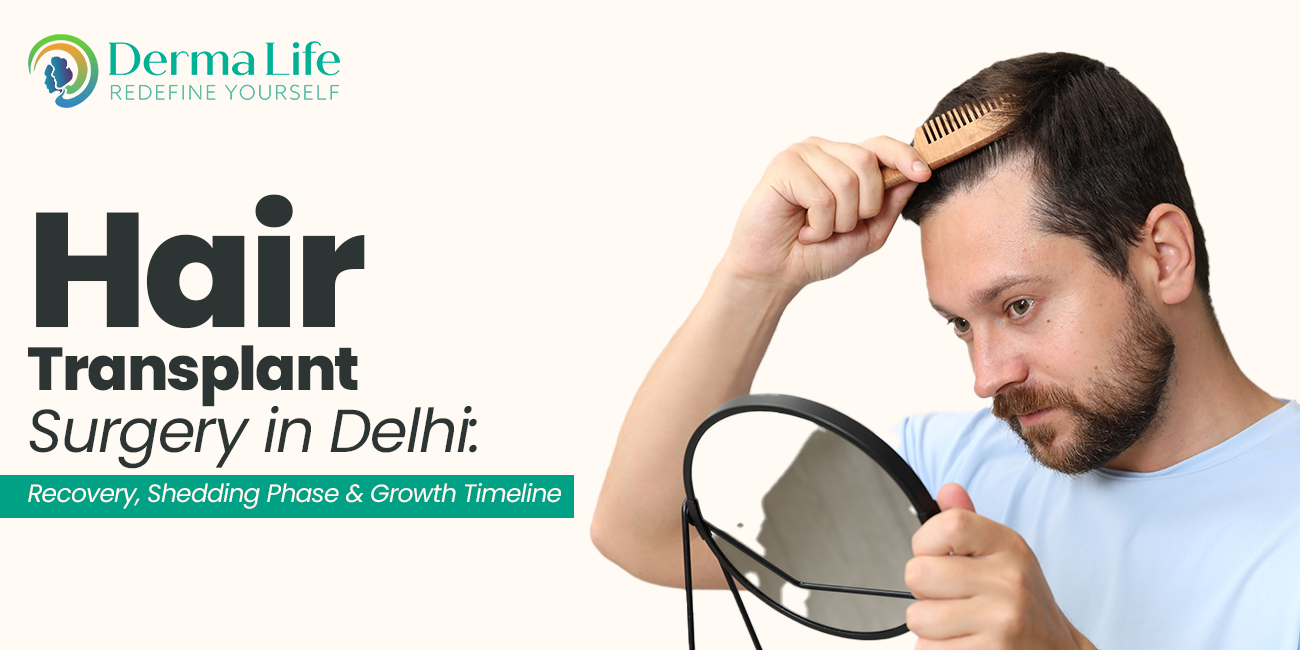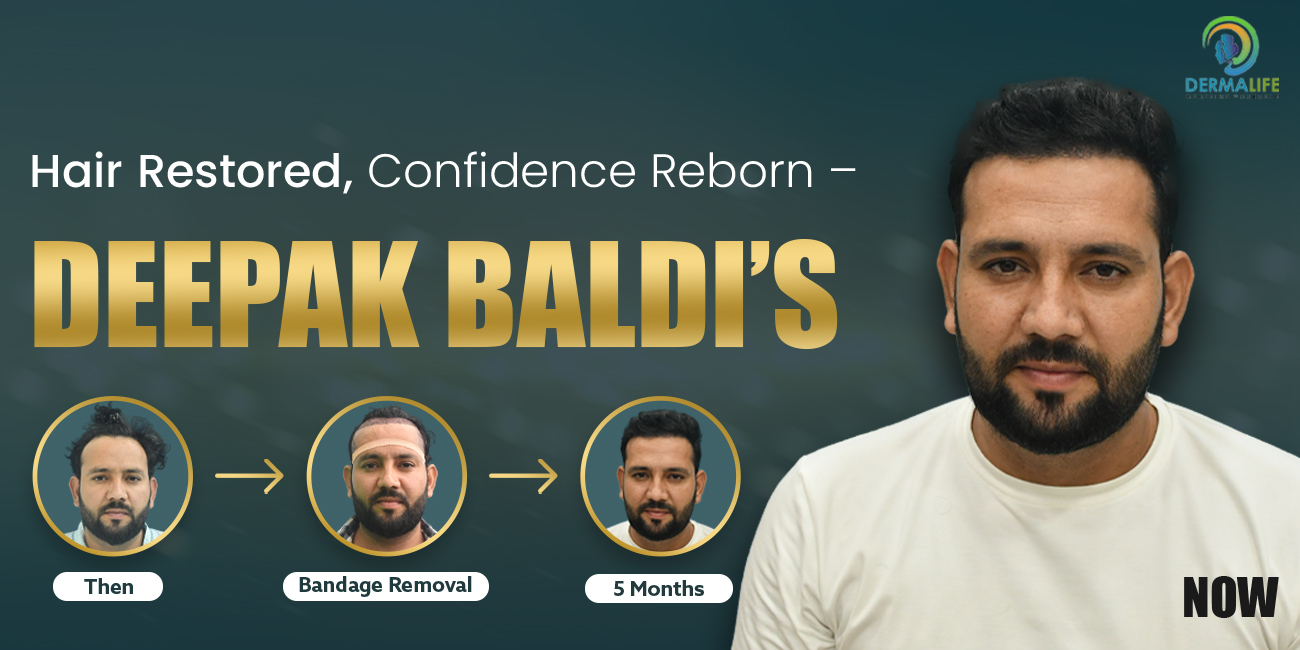Here are 13 Things that should be followed after a Hair Transplant Procedure to get the desired result. One of the most prevalent conditions that affect males is alopecia, which is the term most often used to describe hair loss in both sexes.
You most likely have alopecia if you are experiencing hair loss and bald areas on your head. It is common to lose 50–100 strands per day. You should see a doctor, though, if you feel like you’re losing more and you start to notice bald spots. Hair loss is not the only cause of baldness.
Tips To Avoid After Hair Transplant
-
Avoid Driving As Much As Possible
A hair transplant may occasionally be carried out while heavily sedated. After receiving a sedative, avoid driving for the next 24 hours. Verify that you have transportation to and from your appointment. It is not advised to drive soon after the procedure since the anaesthetics or medications used to make the hair transplant procedure comfortable and uncomplicated may impair your driving skills.
-
Try To Sleep Flat
For the first seven days following treatment, you must just keep your head up to reduce the risk of swelling. Some consumers believe that a few days of head elevation is all that is necessary. Remember, nevertheless, that not everyone who has hair implants swells. You should be able to sleep normally if you do not experience any pressure around your forehead.
We advise turning your recliner into makeshift bed linens if you find that you’re swollen slightly. Some find that sleeping in their recliners is far more comfortable than on top of four pillows, albeit it’s still not ideal. The idea is to maintain a 45-degree head tilt.
After a hair transplant, lying on your head could injure you, prolong the process, or have unanticipated consequences. It is your responsibility to stop this. Observe your physician’s advice and refrain from lying on your face.
-
Avoid Scrubbing Your Hair And Daily Shower
Don’t wash your hair for the first 48 hours following your hair transplant procedure. You can give your hair a gentle wash on the third day following treatment. After treatment, don’t wash your hair too much on the fifth day.
Additionally, avoid immediately blasting the stream onto your scalp. Instead, rinse the shampoo out of your hair using a cup. You can gently apply a conditioner to your scalp if you experience irritation.
Following a hair transplant procedure, taking a shower or vigorously scratching the head could have unfavourable effects. It is crucial to follow the post-operative instructions provided by the doctor to avoid this.
-
Don’t Dye Your Hair
After receiving a hair restoration, you cannot colour your hair for four weeks. Get your hair dyed just before your treatment if you think you won’t be able to last four weeks without it. Shortly before a hair transplant, colouring your hair has no harmful consequences; however, following the procedure, the harsh chemicals in the dyestuff can affect the viability of the transplanted follicles.
The transplanted follicles are extremely delicate for a few weeks after the procedure. They must receive all of the care required. Colouring hair after a hair transplant procedure is challenging and may have unfavourable effects. Following your doctor’s instructions is beneficial. Of the 18 Things to Avoid Following a Hair Transplant Procedure, these were 6 of them.
-
Drink A Plenty Of Water
Water is necessary at all times, but not everyone is aware of how much more crucial it is to be hydrated both before and after a transplant. Your ability to cope will increase with increased hydration, which will also hasten your recovery. Putting in two weeks of deliberate effort to increase your water intake by 10% can have a significant impact on your complete recuperation process.
We highly advise you to just download an app on your phone that will remind you to consume a cup (8 fl. oz.) of water every hour while you’re awake to make sure you’re getting enough water.
You should simply drink half your weight in ounces of water as a basic rule of thumb. For example, you should drink 60 ounces (7.5 cups) of water a day if you weigh 120 pounds. Not every situation, though, will precisely fit this. Examine your pee to determine if you’re getting enough water to drink. It ought to be translucent or extremely pale yellow.
-
Assuming Your Hair Won’t Fall Out
Many people have the misconception that hair loss following hair transplant surgery is a normal and healthy aspect of the natural hair growth cycle. However, this is not always the case. At any given time, between 10% and 15% of your hair is going through the “shedding” phase.
Don’t panic if, two to four weeks following your therapy, you start to notice shedding in the mainstream. Your hair follicles are unharmed. These follicles will produce thicker, healthier, and stronger new hair than before after three months.
-
Avoid Applying Ice Directly To Your Scalp
The same cautions that apply to not rubbing your newly transplanted hairline on your pillow, also apply to not applying ice to the areas of your head where hair has been transplanted. In fact, for the first three days following treatment, you should try your best to refrain from touching your head in any way. After 72 hours, you should avoid touching your scalp in any way. Recall that treating an irritated scalp with conditioner is a better option than picking at it.
Applying ice requires extreme caution, and you should follow your doctor’s instructions. Even scratching can cause unfavourable effects and slow down the process, particularly if the ice makes direct contact with your scalp. Out of the 18 things to avoid after a hair transplant procedure, they were number 10.
-
Avoid Direct Exposure To The Sun
After your hair transplant, stay out of the sun’s direct beams between the hours of 10 AM and 2 PM. Don’t linger outside for too long if you must travel during that time. If you’re on a vacation to “recover” from your hair restoration, make sure you’re protected from sunburn and avoid scuba diving.
In general, we should shield ourselves from the sun’s rays; this is especially true following hair transplant surgery, when the head may have unfavourable effects. When you go out, heed the advice of your physician.
-
Don’t Wear Helmet
You might feel obligated to wear the ball cap that matches your Seahawks jersey. But within 72 hours after your therapy, you are not allowed to wear a hat. Although scabs are an incredibly normal side effect of hair transplantation, try your best to avoid touching the treatment site until they have had enough time to form. After the operation, it is highly advised to avoid wearing a hat as it will cover your head and exert pressure on your hair.
-
Avoid Sweating It Out
Regretfully, skipping intense exercise during the first week following hair transplantation is insufficient. Steer clear of other activities that could make you perspire a lot, such as relaxing in a hot sauna. We advise you to speak with your physician before engaging in any activity that could cause excessive perspiration.
-
Say No To Drinking And Smoking
Alcohol may cause you to become dehydrated because it is a diuretic. This will raise your chance of discomfort and lengthen the time it takes for you to recover. In addition, it has the potential to raise your blood pressure to dangerous levels and lower the amount of blood and vital nutrients that reach your brain. For the first five days following your procedure, abstain from alcohol.
Try to give up smoking a few months before getting a hair transplant if you smoke. Not only is quitting difficult, but it also deranges your vital parameters. Depending on your baseline blood pressure, smoking may raise your blood pressure to a dangerous level.
Recall that blood flow is essential for the development of new, healthy hair. For the first thirty-one days following your therapy, refrain from using any nicotine products, including nicotine gum, patches, cigarettes, and e-liquids.
-
Do Not Eat Fast Food
Fast food is convenient, and you might not want to cook food while you’re healing. But throughout your healing phase, proper hydration and blood flow are nearly as crucial as diet. For your hair to become thick, healthy, soft, smooth, robust, and enjoyable, it needs an abundance of nutrients.
Sadly, fast food frequently lacks nutrients and is high in empty calories. Look around for a supplement that has calcium, magnesium, protein, iron, vitamin B6, zinc, biotin, and lots of protein if you’re having trouble getting enough nutrients from your food.
You shouldn’t need to take any additional amino acid supplements if you consume enough protein from your diet. You can heal more quickly and see faster hair growth by eating a better diet. Regarding what to eat and drink following hair transplantation, we advise you to speak with your physician.
-
Avoid Consuming Much Sugar
If you’re having trouble getting enough nutrients from your diet, look for a supplement that contains enough protein, calcium, magnesium, iron, zinc, and vitamin B6. You shouldn’t need to take any more amino acids if you consume adequate protein. Consuming a more nutritious diet might expedite your recuperation and hair growth. It is advised that you speak with your physician regarding what to consume following hair transplant surgery.
Are you considering a hair transplant to address severe hair loss concerns but unsure about the costs involved? Look no further than Dermalife in Delhi for hair transplant costs, where we offer comprehensive consultations and transparent pricing plans tailored to your individual needs. Our team of experienced professionals understands the significance of affordability alongside quality results. From initial assessments to post-operative care, we prioritize your satisfaction and confidence in every step of your hair restoration journey. Contact Dermalife today to explore your options and take the first step towards regaining your natural hairline and confidence.





